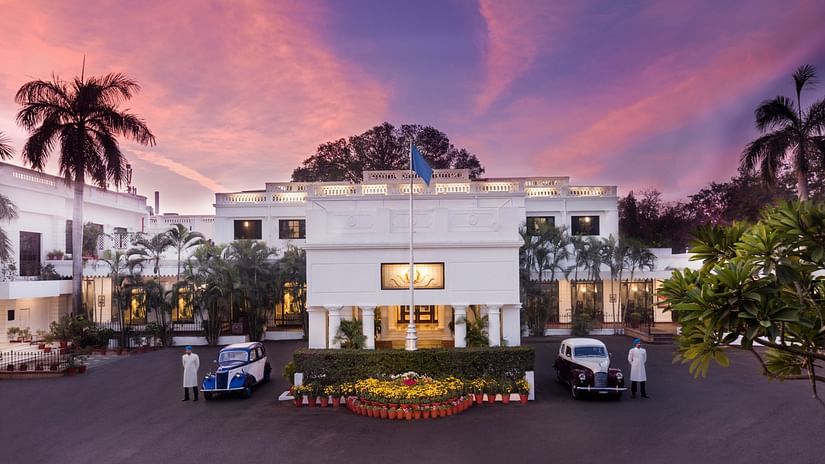
More than just a hotel, Jehan Numa is an experience. Whether you're a business traveler attending a conference or meeting, or simply passing through on your journey through the rich heritage trails of Madhya Pradesh, Jehan Numa offers a welcoming retreat. If you're a tourist exploring the vibrant Bhopali culture or a creative soul seeking inspiration, like many artists, writers, and seekers before you, this is the perfect place to stay longer and connect with your muse. In the heart of Bhopal, Jehan Numa becomes your sanctuary— a home away from home—enhanced by personalized care and comfort, all set within a delightful and charming atmosphere.

The Begums of Bhopal
Qudsia Begum (1819 - 1837)
Sikander Jehan Begum (1844 - 1868)
Nawab Shah Jehan Begum (1868 - 1901)
Nawab Sultan Jehan Begum (1901 - 1926)
A Rare & Royal Heritage
The Nawab Begums of Bhopal, who ruled from 1819 to 1926, each succeeded by her daughter, were remarkable women—dynamic, charismatic, and ahead of their time. Their personalities, vision, values, and actions not only shaped but, in many ways, redefined Bhopali tradition, blending Muslim and Maratha influences. Under their reign, a cosmopolitan culture flourished, marked by peace, progress, and innovation.
As you walk through the Jehan Numa Palace Hotel, this rich history speaks to you. It echoes in the fine details of the Jehan Numa Retreat and Reni Pani Wildlife Lodge. Here, royal Bhopali hospitality fuses with classical heritage and a sophisticated, forward-thinking worldview. The legacy of the Begums is woven through every corner, from their leadership to their lasting cultural impact. The first woman ruler, Qudsia Begum (1819–1837), was succeeded by her only daughter, Sikandar Begum, whose husband, Nawab Jehangir Mohammad Khan, ruled from 1837 to 1844. Their daughter, Shahjehan Begum, then took over, followed by the long reign of Sultan Jahan Begum (1844–1901), after whom the Jehan Numa Palace is named.
Progressive leaders and advocates for women’s rights, the Begums were not only political figures but also military commanders. They rode horses, played polo, wielded swords with skill, and reorganized the administration and revenue systems of Bhopal. Their rule was marked by an unwavering commitment to public welfare—founding hospitals, building railways, improving water systems, and establishing a municipality. The Begums were also cultural patrons. They hosted dignitaries from across India and abroad, traveled the world, and attended the Imperial Court. Sikandar Begum was the first Indian ruler to make the pilgrimage to Mecca, while Sultan Jehan Begum, a poet in both Urdu and Persian, published works that were widely acclaimed.
The Jehan Numa Story
The original Jehan Numa Palace Hotel, built in 1890 during the reign of Nawab Sultan Jehan Begum, was commissioned by her second son, General Obaidullah Khan, the Commander-in-Chief of the Bhopal State Forces, and named in her honor. Following General Obaidullah Khan's death in 1924, the Palace changed hands several times. It was repurposed, renovated, and used by the General’s sons as their secretariat until 1952, when the Indian Government abolished all Jagirs. Afterward, the family leased the Palace to the Government, which used it as a hostel and later as the office of the Geological Survey of India until 1981.
In 1983, Nadir and Yawar Rashid, grandsons of General Obaidullah Khan, decided to share their family’s legacy with the world by transforming the Palace into a world-class heritage hotel. Jehan Numa Palace Hotel opened its doors to visitors in September of that year, and in 2000, it was classified as a Heritage Grand Hotel, the first of its kind in Central India. The additions and renovations to the Palace are so seamlessly integrated that they maintain the original architectural elegance while enhancing the guest experience. Today, the fine tradition of Bhopal’s royal hospitality continues in a contemporary form, with the younger generation—sons of Nadir and Yawar—actively involved in managing the hotel. What was once the exclusive domain of nawabs is now generously shared with guests, offering them a taste of royal living, delivered with warmth and courtesy.





